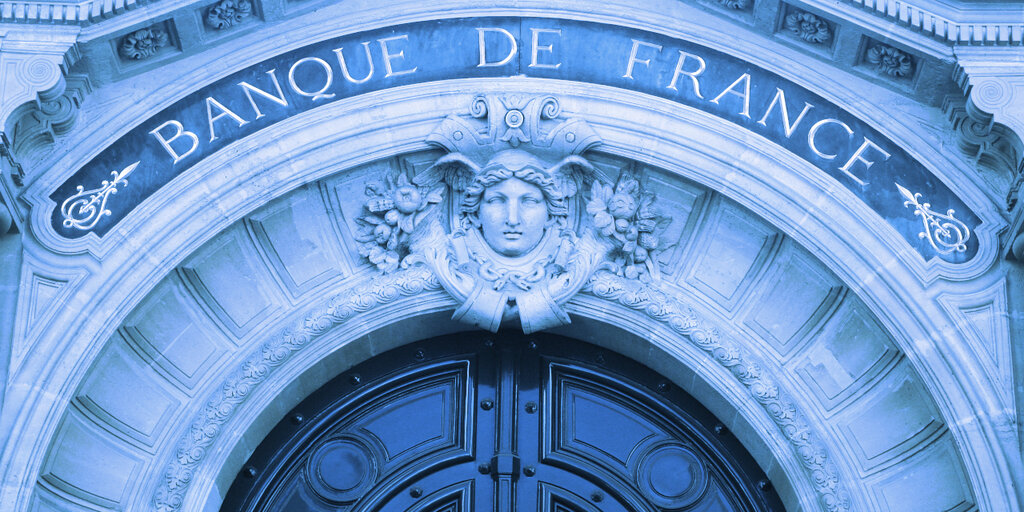

France’s central bank has completed its first central bank digital currency fund transaction on the SETL blockchain, the Banque de France and blockchain company SETL gleefully announced yesterday.
The French bank settled the transaction on the SETL blockchain using SETL’s IZNES platform. The experiment is a collaboration with financial institutions CITI, CACEIS, Groupama, OFI and DXC.
For the purposes of the experiment, which took place on December 17, CITI and CACEIS acted as commercial banks that bought more than 2 million euros in CBDC tokens from the French Central Banks.
The Banque de France said in a statement that its smart contracts allowed it to issue and control the circulation of CBDC tokens to make sure that the money ended up in the commercial banks’ accounts.
The Banque de France completed its first successful test for a CBDC in May of last year. The Banque de France then selected Societe Generale to help it develop a CBDC. In September 2020, SocGen selected Tezos for an experiment and in October tapped ConsenSys (which funds an editorially-independent Decrypt). This week’s experiment is the bank’s first with SETL.
What is a Central Bank Digital Currency?
A central bank digital currency is, through a somewhat circular definition, a virtual currency controlled by the central bank. A report last January from the Bank for International Settlements reported that 80% of all countries are looking into the technology.
Unlike decentralized cryptocurrencies such as Bitcoin, most designs for a central bank digital currency use a centralized ledger controlled by the central bank.
Since central banks control economies through monetary policy, which involves constricting and expanding the monetary supply, most designs for CBDCs (this experiment excluded) often have little to do with blockchains.
What now?
“This experiment represents a significant step forward in assessing the levers that a central bank digital currency provides for enhancing the efficiency and resilience of the settlement of financial asset in a blockchain environment,” said the Banque de France in a statement.
It said that its other CBDC projects will continue until the middle of this year and that it shall titrate all its learnings into a “contribution to the Eurosystem’s more global reflection on the benefits of CBDC.”
Philippe Morel, CEO of SETL, appears less interested in contributing to the vast canon of financial navel-gazing and more anxious to get the ball rolling. He said in a statement today, “We are now excited to take our Payments offering to the next level.”
But, although most European central banks (including the European Central Bank) are interested in a central bank digital currency, none have put serious plans into action.
BusinessRead More


